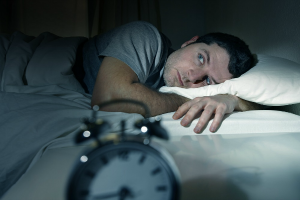 We all know how critical sleep is in our lives and we’ve all suffered from the occasional restless night. You’re probably aware that caffeine and alcohol can affect your ability to get a good night’s sleep, but there are also several other medications you might not be aware of that can lead to sleep disturbances. When it comes to fitful sleep and bad dreams, the monster may be in your medicine cabinet!
We all know how critical sleep is in our lives and we’ve all suffered from the occasional restless night. You’re probably aware that caffeine and alcohol can affect your ability to get a good night’s sleep, but there are also several other medications you might not be aware of that can lead to sleep disturbances. When it comes to fitful sleep and bad dreams, the monster may be in your medicine cabinet!
5 Common Medicines That Cause Sleeplessness
- Cipro: This commonly prescribed antibiotic (full name ciprofloxacin) belongs to the category of fluoroquinolones, which are used to treat urinary tract infections and gastroenteritis. Cipro is extremely effective as an antibiotic, but it has also been linked to vivid, violent dreams in adults and agitated sleep walking in young children.
- Smoking-cessation drugs (Chantix, nicotine patches, Zyban): Many people are not aware that medications meant to help them quit smoking can cause disturbances in sleep. Stressful, seemingly endless dreams as well as frequent waking has been reported by those using these medications.
- Glucosamine and Chondroitin: These are highly regarded dietary supplements used for relieving pain in the joints, as well as improving joint function and lessening inflammation. Both components are found naturally in the human body and have been proven to be beneficial for those suffering from arthritis; however, people who take this supplement at night often note difficulty falling and staying asleep. Other complaints include muscle cramps and sleep talking.
- ACE Inhibitors: are used to treat high blood pressure, congestive heart failure and other conditions. ACE inhibitors relax blood vessels and keep blood pressure low. Some people who take these drugs develop a dry, hacking cough that can disrupt sleep. These medications can also cause potassium to build up in the body, which leads to muscle cramps and diarrhea—two things that may have you up out of bed frequently.
- High Doses of B Vitamins: B vitamins such as niacin (aka B3) are often used to help you sleep; however, when taken in large quantities (daily doses higher than 5,000 mg) the opposite can occur. People taking higher doses reported insomnia, vivid, disturbing dreams, and frequent waking overnight.
Natural Remedies Could be the Answer
Prolonged bouts of sleeplessness can have an impact on your health. Sleep deprivation carries numerous health and safety implications, and some are serious:
- Poor work performance
- Car accidents
- Relationship problems
- Reduced quality of life
- Mood problems like anger and depression
- Increased risk of heart disease, diabetes, obesity, cancer, hypertension, cancer, and increased mortality
Any sudden and persistent disruption in your sleep should be discussed with your doctor, but a little analyzing of your medicine chest can arm you with more information before your visit. Alternatively, consider some natural ways to improve your quality of sleep. For instance, natural herbs and essential oils have proven to have a positive effect on restfulness. As well, banana tea have been making the headlines lately as a popular way to catch some zzz’s. If you plan on using these natural remedies, check with your healthcare provider to ensure these natural remedies are safe to take with your medications.
It’s easy to forget that the supplements and medications we take, even infrequently, can impact our sleep cycles. In some cases your doctor may be able to provide an alternative medication or supplement, or they may be able to tweak the dosage or time of day when the medication is administered to give you benefits without disrupting your sleep.
This article was originally published at Ready Nutrition™ on August 7th, 2016






